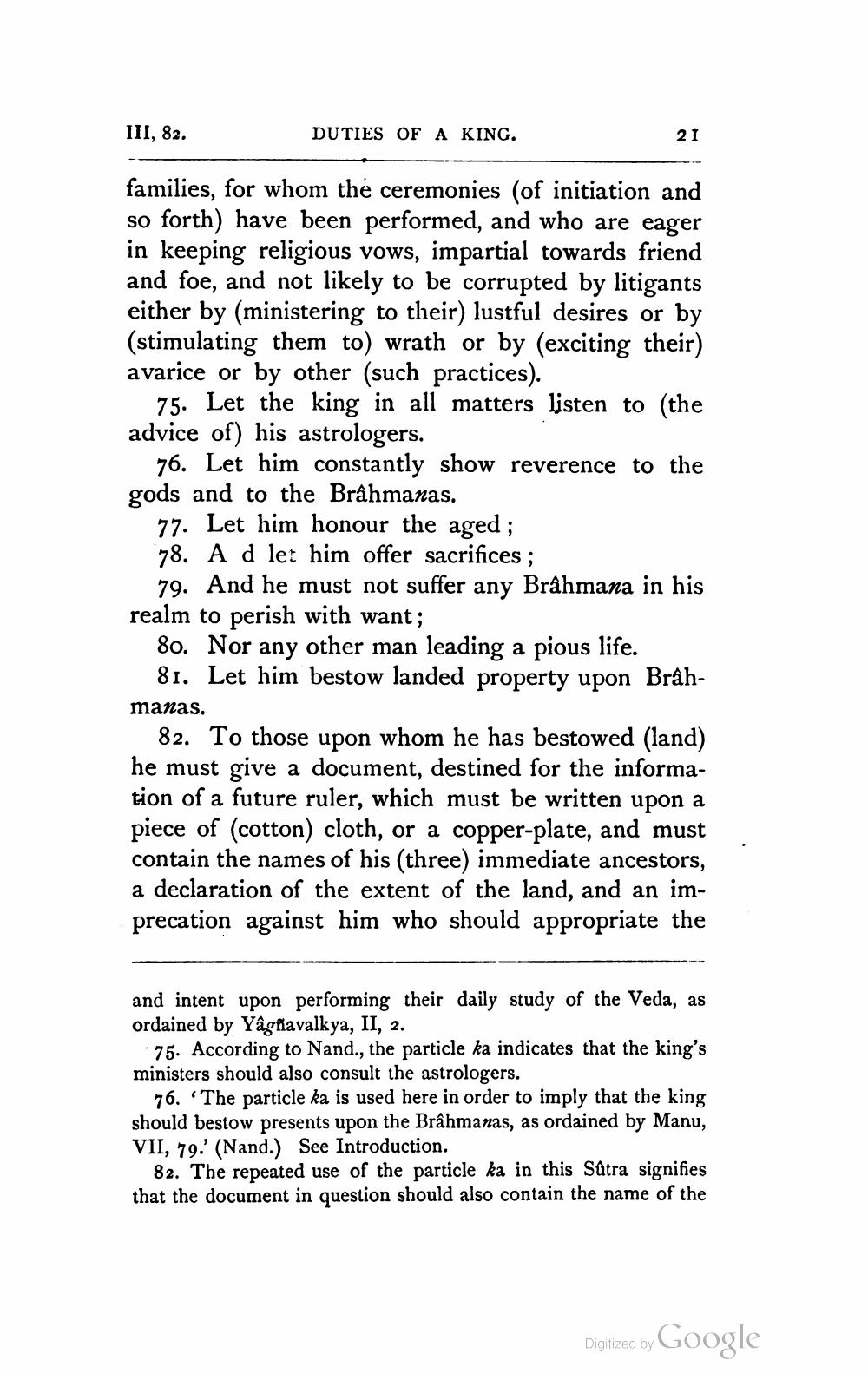________________
III, 82.
DUTIES OF A KING.
21
families, for whom the ceremonies (of initiation and so forth) have been performed, and who are eager in keeping religious vows, impartial towards friend and foe, and not likely to be corrupted by litigants either by (ministering to their) lustful desires or by (stimulating them to) wrath or by (exciting their) avarice or by other (such practices).
75. Let the king in all matters listen to (the advice of) his astrologers.
76. Let him constantly show reverence to the gods and to the Brâhmanas.
77. Let him honour the aged ; 78. A d let him offer sacrifices ;
79. And he must not suffer any Brâhmana in his realm to perish with want;
80. Nor any other man leading a pious life.
81. Let him bestow landed property upon Brâhmanas.
82. To those upon whom he has bestowed (land) he must give a document, destined for the information of a future ruler, which must be written upon a piece of (cotton) cloth, or a copper-plate, and must contain the names of his (three) immediate ancestors, a declaration of the extent of the land, and an imprecation against him who should appropriate the
and intent upon performing their daily study of the Veda, as ordained by Yâgñavalkya, II, 2.
- 75. According to Nand., the particle ka indicates that the king's ministers should also consult the astrologers.
76. "The particle ka is used here in order to imply that the king should bestow presents upon the Brâhmanas, as ordained by Manu, VII, 79.' (Nand.) See Introduction.
82. The repeated use of the particle ka in this Sûtra signifies that the document in question should also contain the name of the
Digitized by Google




